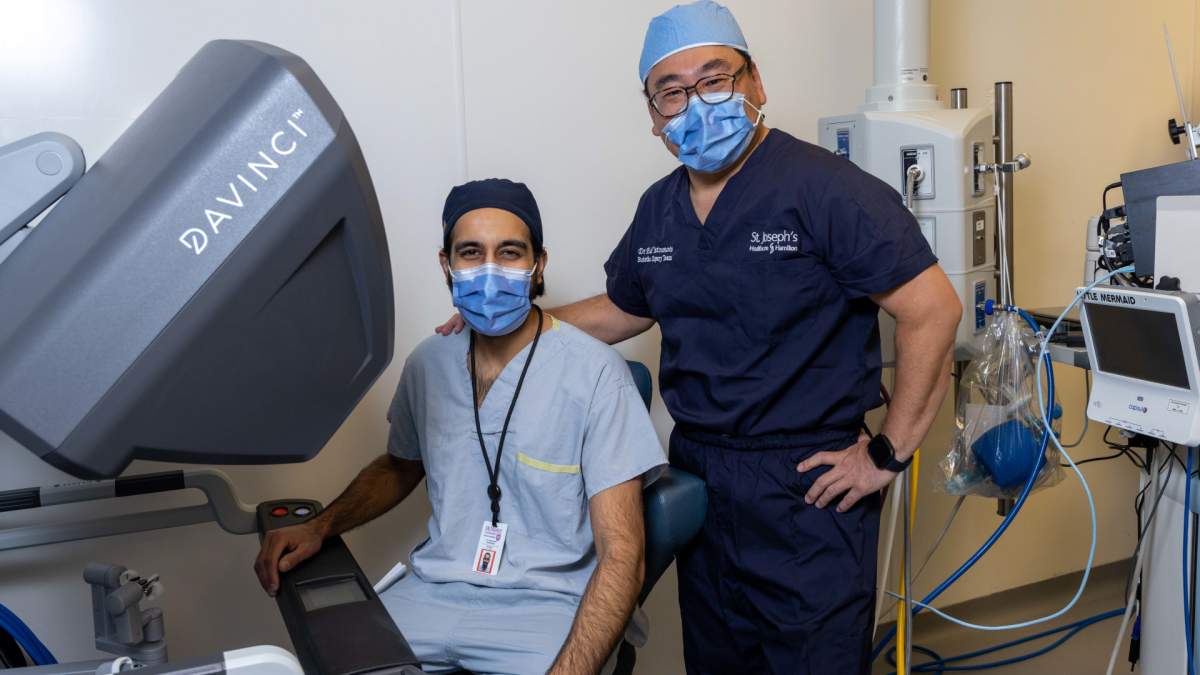A Hamilton-based physician is characterizing a local boot camp at one of the major hospital networks as a “top gun school for surgeons.”

Dr. Eddie Matsumoto, director of the fellowship program for urology at St. Joseph’s Healthcare, says the research and education program is part of a larger scheme the hospital has been seeking to accelerate and enhance the training of residents via intense two-day affairs.
“It’s very similar to a military boot camp for new recruits,” urologist and robotic surgeon Matsumoto told 900 CHML’s Good Morning Hamilton.
“The goal is to teach specific skills to a group of learners in a very short period of time.”
The program is required learning for first-year residents at the hospital network and has an end goal of advancing skills to make them as competent as second-year residents, particularly in the areas of speed and safety.

Get weekly health news
Data from the first year of the camp corroborated that theory with residents scoring an average of 91 per cent on the post-training questionnaires versus the 62 per cent most got prior to the hands-on training.
Matsumoto’s urology boot camp has been around since July 2017 with more than 40 residents from McMaster, Western and the University of Toronto, rolling through it.
In 2022, residents from Queen’s University will join the initiative and the goal at St. Joe’s is to make the boot camp accessible to all first-year urology residents across Canada.
Eventually, the plan is to expand and apply the camp’s training techniques to other medical fields.
Each year, St. Joe’s welcomes an average of 350 graduating physicians to complete their residency rotations.
Across Canada, the hospital network boasts taking on some 1,300 students and residents from 47 different medical disciplines to teach “real-world experience” at its facilities.
Aiding the latest edition of the Hamilton program are $1 million in donations, with $500,000 from telecom executive and philanthropist Dr. Lynton (Red) Wilson’s foundation and a pair of $250,000 contributions from Stoney Creek resident Michael Schwenger and an anonymous donor.
Working from St. Joe’s new Centre for Education, Learning and Simulation, students have opportunities to perform procedures and operate on high-fidelity mannequin patients in controlled environments.
For lack of a better term, Matsumoto says it’s like “a glorified version” of the game of Operation, with the goal of getting each resident comfortable and confident to perform basic surgical skills.
Matsumoto said the training includes things such as inserting catheters, suturing, moving drains, and other day-to-day surgical activities that can become automated with practice, but that can be daunting for novice trainees.
The use of more sophisticated surgical techniques is also included in the boot camp, including the use of robotic equipment as a part of operating room procedures like laparoscopy or endoscopy.







Comments